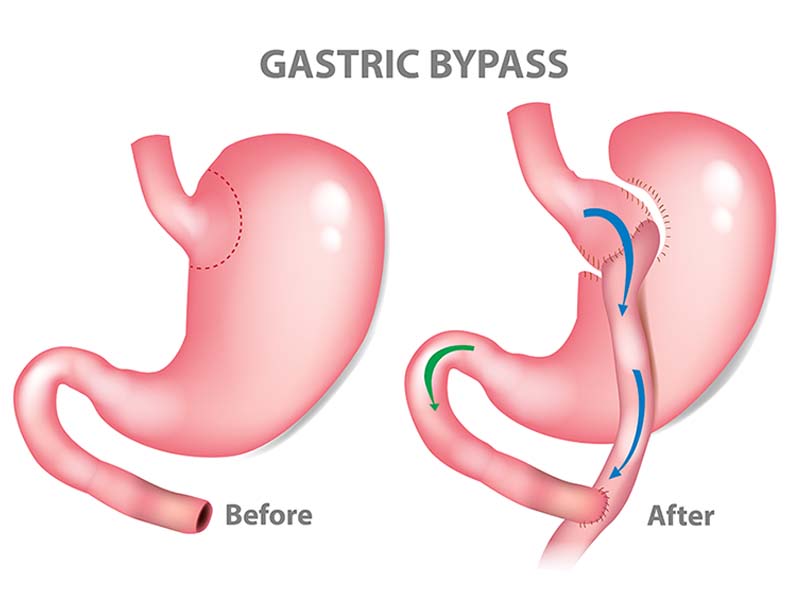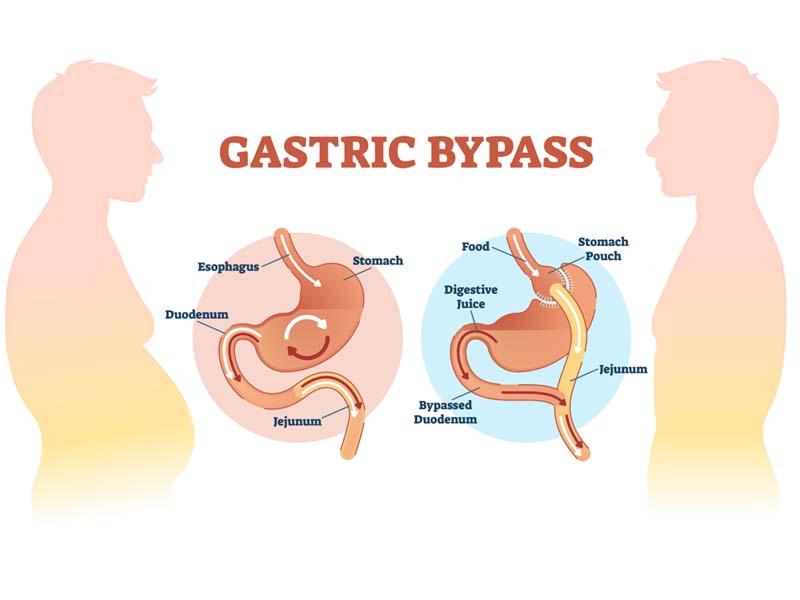Gastric bypass is considered the ‘gold standard’ weight loss surgery that reduces your stomach to the size of a walnut. Gastric bypass, also known as Roux-en-Y (roo-en-wy), is a type of weight-loss surgery that involves creating a small pouch from the stomach and connecting the newly created pouch directly to the small intestine. Gastric bypass is one of the most common types of bariatric surgery in the world. Gastric bypass is done when diet and exercise haven't worked or when you have serious health problems because of your weight.
There are two components to the procedure. First, a small stomach pouch, approximately one ounce or 30 millilitres in volume, is created by dividing the top of the stomach from the rest of the stomach. Next, the first portion of the small intestine is divided, and the bottom end of the divided small intestine is brought up and connected to the newly created small stomach pouch. The procedure is completed by connecting the top portion of the divided small intestine to the small intestine further down so that the stomach acids and digestive enzymes from the bypassed stomach and first portion of small intestine will eventually mix with the food. Most gastric bypass surgeries are laparoscopic, which means the surgeon makes small cuts. That makes for shorter recovery time. If the surgery must be "open," meaning the surgeon has to make a larger cut, healing takes longer.



-0216.jpg)